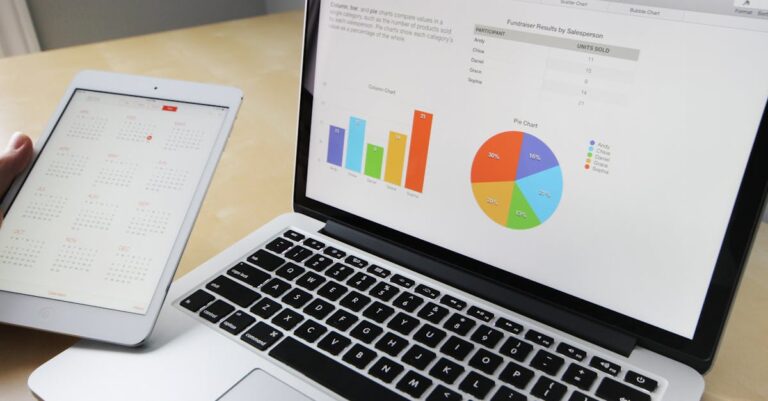Are These Frugal Habits the Key to Massive Money Savings?
“Imagine unlocking the doorway to an abundant financial future, with simpler steps than you ever thought possible. In this enlightening article, we’ll delve into remarkable frugal habits that could be your golden key to massive money savings. Prepare to discover how these everyday behaviors can transform your budgeting and catapult you towards your goal – be it financial independence, early retirement, or a holistic sense of financial well-being.”
Understanding Frugal Habits and Their Impact on Finances

What are Frugal Habits?
Frugal habits refer to mindful and conscious decisions regarding daily spending behaviour to save money. These habits generally focus on reducing wastage, optimising usage, considering quality over quantity, and prioritising needs over wants. These small yet consistent habits can amass substantial savings over time, positively impacting an individual’s financial stability.
The Impact of Frugal Habits on Personal Finances
Frugal habits can significantly rebuild and strengthen personal finances. By spending less and saving more, you can allocate a substantial portion of your income towards your retirement fund or other financial goals. Subsequently, these habits can also result in less reliance on loans or credit, thereby reducing the burden of debt.
Examples of Effective Frugal Habits
Adopting frugal habits doesn’t mean you have to live a spartan lifestyle. The following are a few examples of effective frugal habits that can be incorporated into daily life:
- Meal Planning: Meal planning for the week reduces eating out costs and food wastage significantly.
- Utilising Public Transport or Carpooling: This not only reduces commuting expenses but also environmental impact.
- DIY Solutions: Instead of hiring services for small fixes, a do-it-yourself approach can be rewarding and cost-effective.
- Prioritising Quality over Quantity: Choosing to invest in high-quality items may seem expensive initially, but it saves money in the long run by reducing replacement costs.
Overcoming Challenges in Developing Frugal Habits
While developing frugal habits can seem daunting, start by identifying areas where you have maximum expenditure and can cut costs. Gradually, take small steps towards building these cost-saving habits. Remember, the objective is to save more, not to compromise on an enjoyable lifestyle.
Also, the road to frugality is not about extreme penny-pinching but about informed spending decisions. Resist the temptation of immediate gratification through impulsive purchases. Instead, focus your resources on achieving long-term financial goals.
Boosting Your Financial Future
Developing frugal habits can significantly boost your financial future. As small savings begin to accumulate, you’ll gain a strong sense of financial freedom and security. Also, with a frugal mindset, you’ll be able to make investing decisions that contribute towards a comfortable retirement.
Remember, frugal habits are not about scarcity or deprivation. They are about financial discipline, control, and making the best use of available resources. By embracing frugality, you take a step towards achieving overall financial wellbeing and independence.
Exploring the Connection Between Frugality and Money Savings
Understanding Frugality and Its Impact on Financial Savings
Many individuals are increasingly drawn towards cultivating frugal habits in a bid to enhance their financial health and savings. But, what is frugality exactly and how does it impact financial savings? Frugality is the practice of being economical with resources and avoiding waste, extravagance, and luxury. It is about making the most out of what we have and finding more value in less.
The Frugality-Financial Savings Connection
Here’s how frugality influences financial savings:
- Keeps expenses low: Frugality helps you curb unnecessary spending. This, in turn, keeps expenses low which can significantly contribute to overall savings.
- Encourages mindful spending: Frugality cultivates a habit of mindful spending where one analyzes the necessity of a purchase before buying.
- Leads to higher savings: With lower expenditures and mindful spending, the room for savings growth increases manifold.
Ways to Implement Frugality for Enhanced Financial Savings
Empower yourself with these frugality practices:
- Practice delayed gratification: One of the great tests of frugality is the ability to delay satisfaction. Instant gratification often leads to unnecessary spending, and being able to hold off purchases can greatly enhance savings.
- Love what you already have: Instead of continuously acquiring new goods, appreciate and utilize what you already own. This will not only save money but also reduce clutter in your life.
- Do it yourself: Try to do things yourself instead of paying others to do it. This will save you money in the long run and also gives you a sense of accomplishment.
Frugality as A Lifestyle
Contrary to popular belief, frugality does not mean depriving yourself of enjoying life. It is about prioritizing, setting financial goals, and living within your means. It’s a lifestyle choice that progressively leads to financial independence and stability. It promotes financial discipline and cultivates habits that last a lifetime.
Embracing Frugality for Long-term Financial Security
Frugality’s gift is twofold – it not only helps you accumulate savings but also breeds a content mindset that enjoys life with less. The practice of frugality is more than just a temporary penny-pinching exercise. It is a long-term commitment that can lead to a substantial improvement in financial well-being. When consistently practiced, frugality can lead the way in achieving financial stability and security.
In a world where consumerism is rampant, embracing and mastering the art of frugality can be one of your most powerful tools for paving the path to financial independence.
How to Develop Frugal Habits for Better Financial Health
Understanding Frugality
At the very core of better financial health lies the concept of frugality. Being frugal does not mean living a life of deprivation. Instead, it refers to making conscious, intentional decisions about spending, saving, and investing your money. It is about setting clear financial priorities and making choices that align with these priorities. Frugality, when practiced rightly, can significantly enhance your financial wellbeing while providing a sense of control over your money.
Key Frugal Habits
Developing frugal habits might seem challenging initially, but once integrated into your lifestyle, they can yield significant financial benefits. Here are some key practices that can help you embark on your journey towards frugality:
- Creating and Following a Budget: Budgeting is the cornerstone of frugal living. It helps you monitor your income, expenses, and savings and allows you to make informed decisions regarding your finances.
- Minimizing Unnecessary Expenses: This can be as simple as choosing to cook meals at home rather than dining out, or using public transportation instead of owning a car. Remember, every penny saved is a penny earned.
- Living Within Your Means: Avoid the temptation of consumer debt. If you can’t afford it now, it’s better to save and buy later than borrow and spend now.
- Building an Emergency Fund: An emergency fund acts as a financial buffer, protecting you from unexpected expenses or income loss.
Developing a Frugal Mindset
Adopting frugal habits is as much a mental shift as it is a lifestyle change. It requires developing a frugal mindset, which begins with valuing money and recognizing its potential. A dollar saved today could grow into a substantial amount over time, thanks to the power of compounding. It’s about understanding the subtle yet important difference between needs and wants. It’s about seeking long-term financial health over short-term material pleasures.
Benefits of Frugal Living
Living a frugal life can bring various benefits beyond improved financial health. Not only can it enhance your savings and reduce financial stress, but it can also foster a greater appreciation for what you already have. Furthermore, frugal habits often align with eco-friendly practices – by reducing consumption, reusing, and recycling, you contribute to environmental sustainability while saving money.
Practical Tips for Frugal Living
Starting on the path to frugality can feel overwhelming at first, but the following tips can simplify the process:
- Start Small: You don’t have to overhaul your entire lifestyle at once. Start with small, manageable changes and gradually incorporate more frugal habits into your life.
- Set Realistic Goals: Setting ambitious but achievable savings goals can provide motivation and make the process more rewarding.
- Monitor Progress: Regularly tracking your spending, saving, and investment progress can help you stay accountable and spot areas for improvement.
- Learn Continuously: Lastly, keep educating yourself about financial management. The more you learn, the more empowered you will feel to take control of your finances.
Remember, financial freedom is not a destination but a journey, and frugality is a vehicle that can drive you towards it. As you develop and implement frugal habits, you foster better financial health, equipping you with the resources to reach your financial goals and enjoy a secure financial future.
Practical Examples of Frugal Habits That Can Lead to Massive Savings
The Fundamentals of Frugal Living
Frugality is not about penny-pinching or sacrificing everything you love. On the contrary, it is a smart financial strategy that emphasizes thoughtful spending, appreciating what you have, and maximizing the use of resources. It means making the most of every dollar spent and reducing waste as much as possible. A balanced, frugal lifestyle is about saving money without sacrificing your quality of life.
Saving on Groceries
Food is one of the biggest monthly expenses for most people. However, this is also an area where substantial savings can be made. First, creating a weekly meal plan can significantly reduce food waste and ensure that you only buy the groceries you need. Using coupons, shopping on sale, buying in bulk, and choosing store brands over name brands are also effective ways to save money. Cooking at home instead of eating out not only leads to massive savings but is often healthier too. If you grow your own vegetables and herbs, you can slash your grocery bill even further.
Reducing Utility Costs
Utility bills are another significant monthly expense that can be reduced with frugal habits. Simple changes such as turning off lights when not in use, taking shorter showers, insulating your home, and keeping your thermostat at a lower temperature in winter can lead to significant energy savings. In some regions, it might be more cost-efficient to consider renewable energy sources, such as installing solar panels.
Wise Use of Transportation
Transportation is often the second or third biggest expense in a household budget. However, there are several effective strategies for reducing transportation costs. Walk, bike, or use public transportation whenever possible. If owning a vehicle is a must, consider purchasing a used car that is cheaper and perhaps more fuel-efficient. Regularly maintaining your vehicle can prevent costly repairs down the line.
Ditching Costly Habits
Often people can find substantial savings by doing a lifestyle audit and identifying any costly habits that can be ditched. Examples might include expensive hobbies, frequent dining out, buying new clothes when you already have a full closet, or a subscription service you rarely use. Ditching these habits, even if it’s for a month or two, can lead to significant savings.
Making the Most of Free Resources
There’s an abundance of free resources available that can save you a big chunk of change. These include free community events, free online courses for self-improvement, and free trials for entertainment. Libraries offer free access to books, magazines, DVDs, and sometimes even tools or musical instruments. There are many free or low-cost alternatives to paid services and products if you’re willing to dig a little deeper.
DIY Approach
Living a frugal lifestyle often involves adopting a do-it-yourself approach. Whether it’s home repairs, grooming, or making homemade gifts, there are countless ways to save money by doing things yourself. Not only does this save money, but it can also be very rewarding.
Frugality is not about depriving yourself, but about spending wisely and living mindfully, so you can save for what truly matters to you. Adopting some, if not all, of these habit changes may result in massive savings over time.







